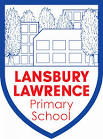Be the change you want to see in the world.
Personal, Social, Health and Economic teaching and learning is embedded within our curriculum and the culture of our school. We hold a Rights Respecting Bronze Award, a SAPERE Philosophy for Children Gold Award, and a Healthy Schools Gold Award. Our statutory Relationships and Health Education (RHE) curriculum has been developed in consultation with parents and the wider community. Resources and lesson plans are shared with parents each year. We collect PSHE data from pupil and parent/ carer surveys annually, to enable us to find out what people think of our existing provision and allow opportunities for us to evaluate and develop it further. We generate guiding questions within our curriculum to encourage debate around living in the wider world.
PSHE is informed by our school’s community ethos and works alongside other areas of learning such as P4C, Computing, Science, and PE. Our designated safeguarding lead organises regular assemblies to support the different themes within PSHE and to ensure children know who to speak to if they need help.
Our school rules are to be safe, be committed and to be respectful; these rules are embedded within our whole curriculum and are the behaviour expectations for all children.
Within PSHE, we want our children to learn about themselves as developing individuals and as responsible members of their communities, building on their own experiences and on the Early Years Foundation Stage framework for personal, social and emotional development. To achieve this, they will learn the basic rules and skills for keeping themselves healthy and safe and for behaving appropriately. They also have opportunities to show that they can take some responsibility for themselves and their environment. They will begin to learn about their own and other people’s feelings and become aware of the views, needs and rights of other children and other people. As members of a class and school community, they will learn social skills, such as how to share, take turns, play, help others, resolve simple arguments and identify bullying. They will begin to take an active part in the life of their school and the wider community.
As they mature and develop during Key Stage 2, they will learn about themselves as growing and changing individuals with their own experiences and ideas, and as members of their communities. They learn about the wider world and the interdependence of communities within it. They develop their sense of social justice and moral responsibility and begin to understand that their own choices and behaviour can affect local, national or global issues, and political and social institutions. They learn how to take part more fully in school and community activities. As they begin to develop into young adults, they face the changes of puberty and transfer to secondary school with support and encouragement from the school. They learn how to make more confident and informed choices about their health and environment; to take more responsibility, individually and as a group, and for their own learning. We have designed our school Learning Dispositions to align with these objectives.
Our PSHE curriculum is divided between three areas; Health & Wellbeing, Living in the Wider World and Relationships. The units are tailored to each year group under the following themes.
- Community
- Families and Friendships
- Safe Relationships
- Money and Jobs
- Growing and Changing
- Physical health and Mental Wellbeing
- Growing and Changing
- Keeping Safe
- Rights and Responsibilities
The British Values: Democracy, The Rule of Law, Mutual Respect, Individual Liberty, Tolerance of those of Different Faith and Beliefs are highlighted through assemblies and within the PSHE curriculum.
Children from Early Years through to Year 6 have weekly P4C sessions. Each class has a P4C book, which they use to record their learning.
PSHE lessons are evidenced within curriculum and P4C books. Teachers may choose to use photographs of lessons alongside pupil reflections. Alternatively, they may choose a piece of written work from a group or individual children to represent the lesson. At Lansbury Lawrence, we expect the children to show evidence that build on key skills each year. Children are given a safe space in which to discuss their feelings, opinions and develop their emotional intelligence.
